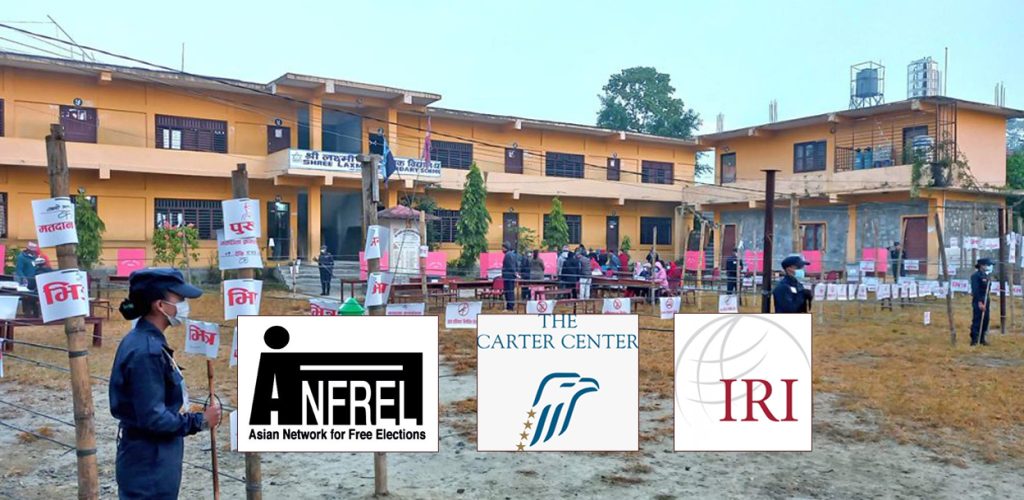A house in Parseni of Gadawa rural municipality, Dang has been in a state of shock for the past month. Three members of the same household died of Covid-19 in the span of 30 days at a Covid-19 hospital in Beljhundi of the district.
The first to die was Abdul Kalam on April 24. From the hospital, his body was brought to the village for final rites in a traditional Muslim manner. A few days later, Kalam’s brother Mohamad Umar was diagnosed with Covid-19. Even though he was rushed to the hospital on time, he died of complication at the same hospital on May 8.
Three days later, Umar’s 26-year-old son Ahmed Razak, who had been admitted at the same hospital, died due to the lack of oxygen, on May 11. That day, eight other Covid-19 patients lost their lives due to the same problem at the hospital.
Forlorn family
Razak contracted the virus while he was taking care of his father Umar at the hospital. A few days later, he was admitted beside his father after getting seriously ill due to Covid-19.
Umar, knowing he will not survive, was seen calculating how much money he owes to various people in the village.
“Razak saw Umar calculating. Both ended up crying in the others’ arms. Both looked hopeless,” says Gulam Mohamad Jaga, the ward chair of Gadawa rural municipality – 4.
Jaga says that the condition of Razak started to worsen from the day he saw the dad giving up on staying alive.
The family was in the cattle business and specifically traded buffalos. They used to bring buffalos from Balarampur in India and sell them to people in Nepal. However, the future of the business and the family is in serious doubt after three members have died in a month.
“Kalam’s family will be alright, I think. But Umar’s won’t,” says Jaga. “Their eldest son Raja died, their second son is differently-abled and the youngest one is too small. They told me they have to pay back a loan of Rs 2.5 million.”

Reasons and regrets
People from the community say that the reason Umar and Raja contracted the virus was the lack of proper safety measures used followed during the final rites of Kalam.
“They performed the final rites themselves using their influence without fulfilling necessary protocols. Now, look what happened,” says a local from Parseni.
Indrajit Tharu, a member of the Provincial Assembly in Lumbini, also hints that the lack of safety protocols during the final rites might have the reason why the family members contracted the virus.
Tharu, who was close to the family, wrote on Facebook how it was important to follow proper safety protocols while performing final rites of people who died of Covid-19.
“Everyone needs to take necessary precaution. We can’t be careless because if we are, the virus will get to us,” he wrote, asking officials from the ward to test the entire community for the virus.
While everyone is putting the blame on the family and ward chair Jaga for performing the final rites themselves, ward chair Jaga says that they had no choice but to do it themselves. Even though they did it themselves, he claims they made sure they fulfilled all safety protocols.
“According to our tradition, we have to do a few rituals before we bury the body. While doing those rituals, we’d ensured everyone was socially distanced,” says Jaga.
Jaga, who is the deceased family’s neighbour, says that out of the three, Razak died due to the hospital’s negligence. He says that even though he himself took oxygen to the hospital, the hospital did not replace the cylinder on time, due to which the 26-year-old died.
“The hospital told us Razak didn’t have Covid-19. Then, they informed us they need to put him on oxygen support and do it fast. We used all the influence we have and brought the oxygen on time. But, he still died,” says Jaga.
However, the manager of the Covid-19 hospital in Beljhundi in Dang, Drona Oli, says that Razak’s condition before he was brought to the hospital from the isolation centre in Lamahi was bad.
“He had been brought to the hospital with oxygen support from Lamahi. He was sent here after his health worsened. We accommodated him, but due to lack of oxygen he died with eight others on May 11,” says Oli.
Oli says that he understands why the family blames the hospital but adds that they are helpless in this situation as they get little to no help from the provincial or the central government.
“The government has set a quota of 100 cylinders. We can’t save lives with just that much,” says Oli. “We need a lot more because the situation will continue to be like this.”



























